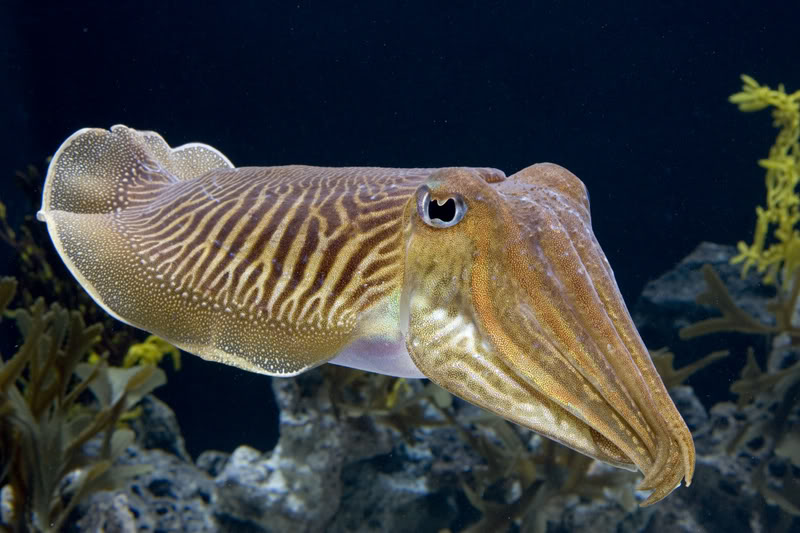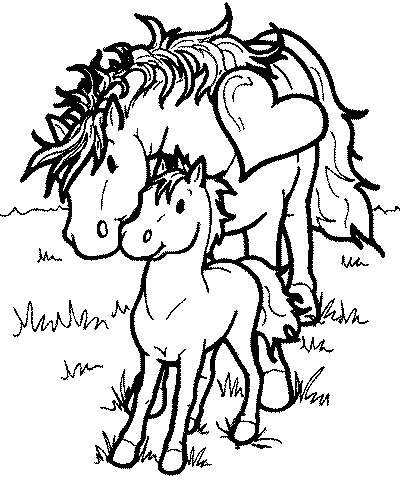Bonjour!! Comme je l'avais dit a Vanille, je suis à un congrès d'éthologie actuellement. Et je me suis dit que peut etre certaines d'entre vous pourraient etre interessées par les sujets sur les chevaux. Personnellement c'est les Céphalopodes qui m'ont le plus plus et les chiens pas mal aussi.

Voilà les titres et abstracts des 1ères conférences les plus intéressantes pour le forum que j'ai réussi à les récupérer:
Just one thing to say: Enjoy!
Talk 1: Neonatal handling affects durably bonding and social development: experimental studies in the domestic foalAbstract: The neonatal period in humans and in most mammals is characterized by intense mother-young interactions favoring pair bonding and the adaptation of neonates to their new environment. However, in many post-delivery procedures, human babies commonly experience combined maternal separation and intense handling for about one hour post-birth. Currently, the effects of such disturbances on later attachment and on the development of newborns are still debated: clearly, further investigations are required. As animals present good models for controlled experimentation, we chose domestic horses to investigate this issue. Horses, like humans, are characterized by single births, long lactating periods and selective mother-infant bonds. Routine postnatal procedures for foals, as for human babies, also involve intense handling and maternal separation. In the present study, we monitored the behavior of foals from early stages of development to “adolescence”, in a normal ecological context (social groups with adults and peers). Experimental foals, separated from their mothers and handled for only 1 hour post-birth, were compared to control foals, left undisturbed after birth. Our results revealed short- and long-term effects of this unique neonatal experience on attachment and subsequent social competences. Thus, experimental foals presented patterns of insecure attachment to their mothers (strong dependence on their mothers, little play) and impaired social competences (social withdrawal, aggressiveness) at all ages. We discuss these results in terms of mother-young interactions, timing of interactions and relationships between bonding and subsequent social competences. Our results indicate that this ungulate species could become an interesting animal model. To our knowledge, this is the first clear demonstration that intervention just after birth affects bonding and subsequent social competences (at least until “adolescence”). It opens new research directions for studies on both humans and other animals.
Talk 2: Species-typical side biases of horses (euuh pas d'abstract pour le moment et pas très bien compris la Conf, j'ai parlé avec l'auteur qui m'envoie l'article directement par email) Mais c'est sur la lateralité, elle a montré que l'oeil gauche était plus réactif et agressif que le droit! C'est passionnant, mais c'est en Australie ses études!!
Talk 3: Are horses lateralized for the auditory processing of whinnies varying in their degree of Familiarity?: Socially dependent auditory laterality in domestic horses (Equus caballus)Abstract: Laterality is now known to be an ubiquitous phenomenon among the vertebrates. Particularly, laterality of auditory processing has been demonstrated in a variety of species, especially songbirds and primates. Such a hemispheric specialization has been shown to depend on factors such as sound structure, species specificity and types of stimuli. Much less is known on the possible influence of social familiarity although a few studies suggest such an influence. Here we tested the influence of the degree of familiarity on the laterality of the auditory response in the domestic horse. This species is known for its social system and shows visible reactions to sounds, with one or two ears moving towards a sound source. By comparing such responses to the playback of different conspecific whinnies (group member, neighbor and stranger), we could demonstrate a clear left hemisphere (LH) preference for familiar neighbor calls while no preference was found for group member and stranger calls. Yet, we found an opposite pattern of ear side preference for neighbor versus stranger calls. These results are, to our knowledge, the first to demonstrate auditory laterality in an ungulate species. They open further lines of thought on the influence of the social “value” of calls and the listener’s arousal on auditory processing and laterality.
Talk 4: What sort of influence do adult horses exert on youngers?[/b]
BackgroundAdults play an important role in regulating the social behaviour of young individuals. However, a few pioneer studies suggest that, more than the mere presence of adults, their proportions in social groups affect the social development of young. Here, we hypothesized that aggression rates and social cohesion were correlated to adult-young ratios. Our biological model was naturally-formed groups of Przewalski horses, Equus f. przewalskii, varying in composition.
Methodology/Principal FindingsWe investigated the social interactions and spatial relationships of 12 one- and two-year-old Przewalski horses belonging to five families with adult-young ratios (AYR) ranging from 0.67 to 1.33. We found striking variations of aggression rates and spatial relationships related to the adult-young ratio: the lower this ratio, the more the young were aggressive, the more young and adults segregated and the tighter the young bonded to other young.
Conclusion/SignificanceThis is the first study demonstrating a correlation between adult-young ratios and aggression rates and social cohesion of young individuals in a naturalistic setting. The increase of aggression and the emergence of social segregation in groups with lower proportions of adults could reflect a related decrease of the influence of adults as regulators of the behaviour of young. This social regulation has both theoretical and practical implications for understanding the modalities of the influence of adults during ontogeny and for recommending optimal settings, as for instance, for schooling or animal group management.

Y en a eu ce matin mais j'ai pas encore copié sur mon ordi mes prises de notes ni les abstracts. Si ca vous intéresse j'en mettrais d'autres.
